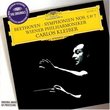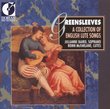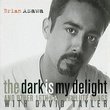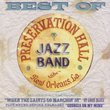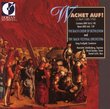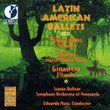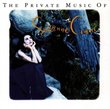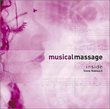| All Artists: Johann Sebastian Bach Title: Bach: Cello Suites Nos. 1-6 Members Wishing: 2 Total Copies: 0 Label: EMI Classics Release Date: 6/13/1995 Genre: Classical Styles: Chamber Music, Historical Periods, Baroque (c.1600-1750), Instruments, Strings, Symphonies Number of Discs: 2 SwapaCD Credits: 2 UPCs: 724355536327, 724355536358 |
Search - Johann Sebastian Bach :: Bach: Cello Suites Nos. 1-6
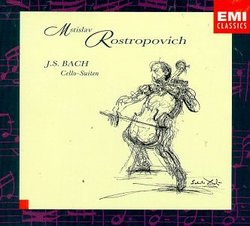 | Johann Sebastian Bach Bach: Cello Suites Nos. 1-6 Genre: Classical
Mstislav Rostropovich is one of the few musicians who can create a larger-than-life experience through the combined forces of exceptional music, a beautiful instrument, and uncommonly facile communicative skills. In his ... more » |
Larger Image |
CD DetailsSynopsis
Amazon.com Mstislav Rostropovich is one of the few musicians who can create a larger-than-life experience through the combined forces of exceptional music, a beautiful instrument, and uncommonly facile communicative skills. In his performances of Bach's transcendent masterpieces for solo cello, Rostropovich finds a perfect balance between a romantic, rhapsodic interpretation and one that emphasizes the purely formal "aridity" of Bach's structures. Although it's nearly impossible to isolate one or two highlights, the Sarabande and Prelude from Suite No. 5 are among the most profoundly moving cello performances you will ever hear--the closest we probably will ever come to experiencing through music the soul of both Rostropovich and Bach. Not everyone will immediately appreciate the very resonant sound that emphasizes the cello's lower register. But after a few minutes your ears adjust, the music takes over, and nothing else seems important. --David Vernier Similarly Requested CDs
|
CD ReviewsThe definitive performance of the Suites. Steven R. Jones | Virginia Beach, VA | 12/19/1999 (5 out of 5 stars) "I am an ameteur cellist and do not easily criticize the efforts of the many truely great and talented masters of the instrument who have undertaken the challenge of the Bach Cello Suites.To me, the Suites are virtually a world unto themselves within the broad range of music for the instrument. The act of performing the Suites seems to be a defining moment for the cellist, with the example set by Casals earlier in the century. The unusual balance of austerity and warmth, grace and power, and lyricism without leading into sentimentality make this a unique contribution to the discography of this work. If you are to experience only one perfomance of the Suites, this is the one.There is no question that every student of the cello should listen at some point to the Casals performance of the suites. The recording by Turovsky is especially animated but tends to carry more raw energy and power than seems best suited for this piece. The Yo Yo Ma recording is my second choice, as it seems to tend slightly to far toward the lyrical and often offers too much finess where more energy and power would better serve the music. Lynn Harrell's recording is technically excellent, but perhaps lacks the benefit of Slava's breadth of experience and heart (he is still less than 60 years old). Pierre Fournier's performance is an interesting on to compare as well. The phrasing and sense of rhythm are different than the others, and deserves a careful listening as well.The Bach Suites are best appeciated by hearing the varied approaches of the many great cellists who have performend them. This is not a work where any serious listener or student of music can reasonably expect to own only one recording, but Slava's Bach Suites are a remarkable demonstration of artistry played on a remarkably beautiful cello. The recording is a technical masterpiece by EMI as well. Highly recomended." You should see Slava's videos that go with these suites! Yvonne Caruthers | Arlington, VA USA | 05/13/1999 (5 out of 5 stars) "I'm a cellist in the National Symphony Orchestra, which Slava conducted for 18 years. It was my privilege to work with him and get to know him as a musician and as a person. Listening to these suites is a lot like talking to Slava--intense, human, warm, committed. No, they aren't like anyone else's playing, but Slava is unique. He has thought deeply about these pieces, knows every note in them, and wanted to pass on his vision of the music to the world. The playing is impeccable, the vision is transcendant. I prize these recordings as homage paid from one master, Slava, to another, Bach. (These recordings are the same music that is on the videos Slava made of the Bach suites, but in CD format.)" Captivating Guy Cutting | 06/12/2000 (5 out of 5 stars) "As a singer, I generally feel comfortable writing reviews of much of the Renaissance music I listen to - but cello music is different. I play the piano and the organ, so I can relate to the interpretation of instrumental music on some level; having never played a stringed instrument, though, I'm not sure I'm as equipped to judge this recording. But let me start by expressing my love for these cello suites. One thing immediately noticable about them is true almost universally of Bach's music - the emphasis is not on melody, but rather texture and harmony (and in the case of solo instrumental music, implied harmony). Even in the case of the prelude to the first suite (an enormously popular piece of music and one you'll recognize immediately even if you're not familiar with these pieces) the focus is on symmetry and proportion, and not melody per se. These works truly are masterpieces - Bach does more with one instrument than it seems possible to. There is a lifetime and more of music here. Moving on to the recording itself, let me just say that I would pay $30 just for the liner notes. They are not just informative about the pieces played, but give fascinating insight into Rostropovish as a musician, artist, and a character. The depth of feeling with which Rostropovich approaches these pieces is really something. His playing is spectacular. The tempi (which struck me as fast in places on the first listen) actually make a lot of sense - once you realize what is mentioned above about melody, you realized that the quick tempos serve to highlight the texture of the line which is so important to the music. You can feel Rostropovich pouring himself into this music - what is more, you feel a connection with him on the level that he is obviously feeling the music speak to him just as it does to you as a listener (he speaks in the notes of the introspective nature of performance). Unfortunately, I haven't heard other recordings of the cello suites, so I can't give any comparative information - I can, though, recommend this recording based on the tremendous quality I see present."
|

 Track Listings (21) - Disc #1
Track Listings (21) - Disc #1

